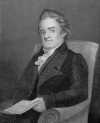Daily Content Archive
(as of Monday, October 16, 2023)| Word of the Day | |||||||
|---|---|---|---|---|---|---|---|
wharfage
| |||||||
| Daily Grammar Lesson | |
|---|---|
AppositivesAn appositive is a noun that serves to describe or rename another noun (or pronoun) that appears directly before it in a sentence. When an appositive is made up of a noun phrase, what is it called? More... | |
| Article of the Day | |
|---|---|
 The Incandescent Light BulbNow the iconic symbol for an idea, the electric incandescent light bulb was independently produced in the late 1870s by Joseph Swan and Thomas Edison—and perhaps earlier by others. However, Edison has received the major credit for this invention because he also developed the power lines and other equipment needed for a lighting system. Financed by the likes of J.P. Morgan and the Vanderbilts, Edison achieved success using a carbon filament in his design. How do incandescent light bulbs work? More... | |
| This Day in History | |
|---|---|
 Cardiff Giant "Uncovered" in New York (1869)One of the most famous hoaxes in American history, the Cardiff Giant was a gypsum statue passed off as a petrified prehistoric man. It was the creation of businessman George Hull, who had the figure sculpted, artificially weathered, buried, and dug up. After charging fascinated onlookers to view the figure, Hull sold the giant, which was so popular that P.T. Barnum even had an unauthorized copy of it made. What much-repeated aphorism was coined in reference to those paying to see Barnum's giant? More... | |
| Today's Birthday | |
|---|---|
 Noah Webster (1758)Webster was an American lexicographer. After serving in the American Revolution, he published The Elementary Spelling Book, or "Blue-Backed Speller," which helped standardize American spelling and sold some 100 million copies. In 1807, he began work on his landmark American Dictionary of the English Language, which included definitions of 70,000 words—of which 12,000 had never appeared in a dictionary before. How many languages did he learn while compiling the dictionary? More... | |
| Quotation of the Day | |
|---|---|
 Ill-luck, you know, seldom comes alone. Ill-luck, you know, seldom comes alone.Miguel de Cervantes (1547-1616) | |
| Idiom of the Day | |
|---|---|
have the heart (to do something)— To be hard hearted, callous, or unsympathetic (enough to do something); to have the emotional resolve (to do something). Usually used in the negative. More... | |
| Today's Holiday | |
|---|---|
 World Food Day (2023)Proclaimed in 1979 by the conference of the Food and Agriculture Organization (FAO) of the United Nations, World Food Day is designed to heighten public awareness of the world food problem and to promote cooperation in the struggle against hunger, malnutrition, and poverty. October 16 is the anniversary of the founding of the FAO in Rome, Italy, in 1945. More... | |
| Word Trivia | |
|---|---|
Today's topic: throwingmissile - First an adjective meaning "suitable for throwing." More... precipitate, precipitation - Precipitate is from Latin praecipitare, "to throw or drive headlong"; precipitation first meant the action of falling or throwing down. More... throw - Its original sense was "twist, turn," as in throwing a pot on a potter's wheel; it is not known how it evolved into "hurl, project." More... gone to pot - Comes from Elizabethan times, when leftover meat was thrown into a big pot for another meal. More... | |